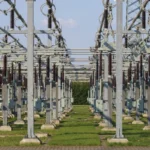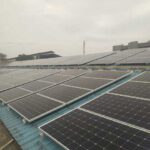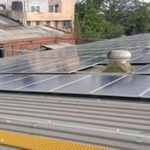Net Metering and its Advantages
Net Metering and its Advantages
Net metering is a system of control. Its purpose is to maintain checks and balances specifically for those who have solar heating panels on their roofs. It is also a net preserver of energy usage. This means that homeowners are in a position to monitor and control the amount of energy they use during the day or at night. Sometimes, when you’re away and solar energy is not being used, your home may generate extra electricity using solar energy.
You can buy some expensive batteries to store that extra energy to use at night but there’s another option to send extra power produced back to the grid and that’s what we call net metering.
Net metering allows solar energy customers to receive a credit for the electricity they generate. When you use solar panels to produce electricity at home, you may generate more power than your house needs during the day. If your home is equipped with net metering, you can export extra energy to the grid and get credits that can be used when you need them. Net metering ensures the energy you generate at home doesn’t go to waste.
According to SEIA (Solar Energy Industries Association), “Net metering allows residential and commercial customers who generate their own electricity from solar power to feed electricity they do not use back into the grid. Many states have passed net metering laws. In other states, utilities may offer net metering programs voluntarily or as a result of regulatory decisions.“
These are some features of Net Metering:-
- Consumers can generate their own energy at any time of the day
- Solar energy can be used even at night
- Energy not used in a month can be rolled over to be used in the next month
- Solar power can be used during winter months when there is little or no sunlight. For example, a Northern European region has very few sunlight and daylight hours during the summer. It is still possible to store solar power during winter months when there is no daylight at all.
Some advantages and disadvantages of Net Metering are as follows:-
Advantages of Net Metering
- Reduced electricity bills
- Benefits for the environment
- No need to install an expensive battery storage system
- Take some pressure off electric grids
- Encourages customers to move towards renewable energy
- Preserves natural energy resources
Disadvantages of Net Metering
In many parts of the world, governments or localized municipal authorities remain resistant to the net metering monitoring process because it impacts negatively their ability to collect revenue from tax and/or ratepayers. To compound matters, many developing nations where this problem is prevalent, they are still dealing with issues related to illegal connections in informal settlements.
- The revenue collected is not utilized effectively to provide housing for citizens living in informal settlements.
- Authorities remain resistant to consumers’ rights to power usage as needed.
- Because net metering systems are not fully regulated, it is not always easy for consumers to access these.
- By not allowing access, the costs of acquiring electricity remain excessive for consumers.
Net metering allows utility customers to generate their own electricity cleanly and efficiently. During the daytime, most solar panels produce more electricity for households or industries than they consume. Net metering allows them to export that power to the grid and reduce their future electric bills.
Net metering also provides substantial economic benefits in terms of jobs, income, and investment. Net metering increases the demand for solar energy, which in turn creates jobs for the installers, electricians, and manufacturers who work in the solar supply chain. Today, the solar industry employs more than 230,000 workers in the industry in large part due to strong state net metering policies which have allowed the solar industry to thrive.
Suggested Articles

Group Net Metering for Solar Projects: A Smart Way to Maximize Solar Energy Generation
Discover how group net metering allows multiple participants to share solar energy from a single project, reduce electricity bills, and enhance solar efficiency.

Latest MNRE List: Approved Solar Module Manufacturers
Check the latest MNRE-approved list of solar module manufacturers to ensure quality and compliance for your solar projects in India.

India’s Renewable Energy Revolution: The Role of Agrivoltaics
Agrivoltaics, the integration of solar panels with agricultural land, is emerging as a key driver in India’s renewable energy revolution. This blog explains how agrivoltaics supports sustainable farming, increases land efficiency, and contributes to clean energy production, helping India meet its solar energy targets while boosting rural economies.

Haryana’s GEOA 2025: A Boost for Captive Solar Plants and Wind Energy Developers
Haryana’s GEOA 2025 paves the way for growth in captive wind and solar energy projects with investor-friendly reforms.

Are Colleges and Schools ready to take up Solar challenge?
Adopting solar energy can help schools and colleges reduce electricity costs and promote sustainability. This guide explores how educational institutions can implement rooftop solar projects, the benefits, and what steps are needed to take on the solar challenge effectively.

Is Your Solar PV Rooftop System Safe & Protected?
Worried about the safety of your solar rooftop system? Explore key tips, maintenance practices, and protection strategies to keep your Solar PV system secure and efficient

How Azimuth Angle Impacts Solar Panel Efficiency for Homes, Industries, and Commercial Buildings
Discover how solar panel azimuth impacts energy generation in homes, industries, and commercial buildings. Maximize efficiency with correct orientation.

UP Government Incentive: Stamp Duty Exemption for Solar Land
Uttar Pradesh offers stamp duty exemption on land for solar projects, encouraging investment and growth in renewable energy.